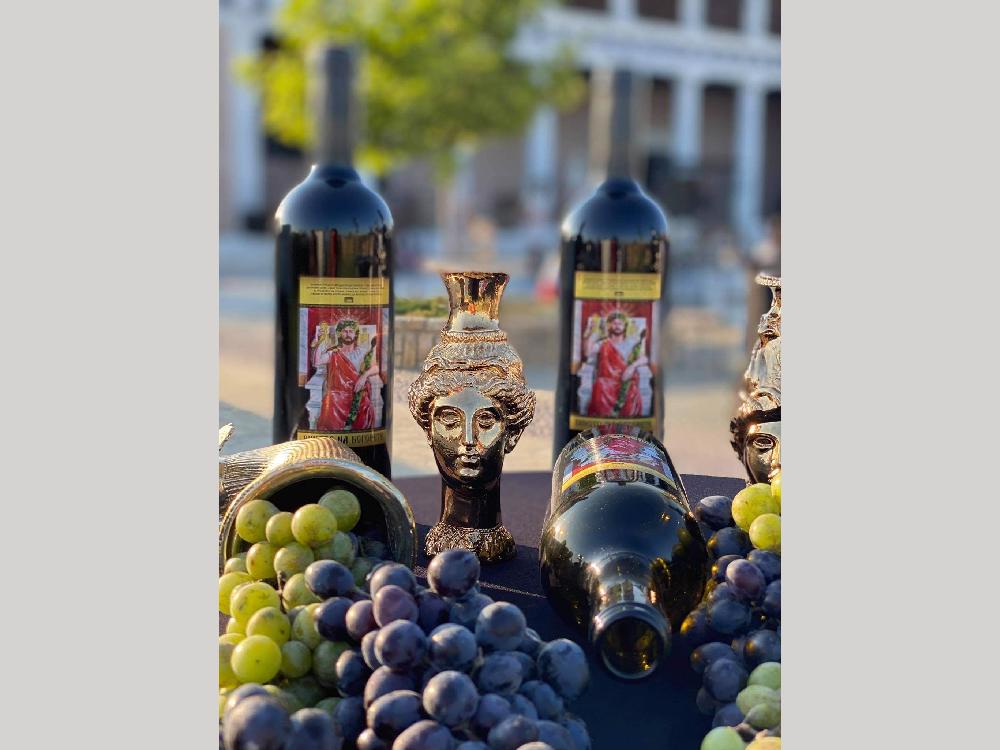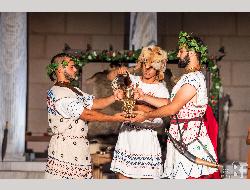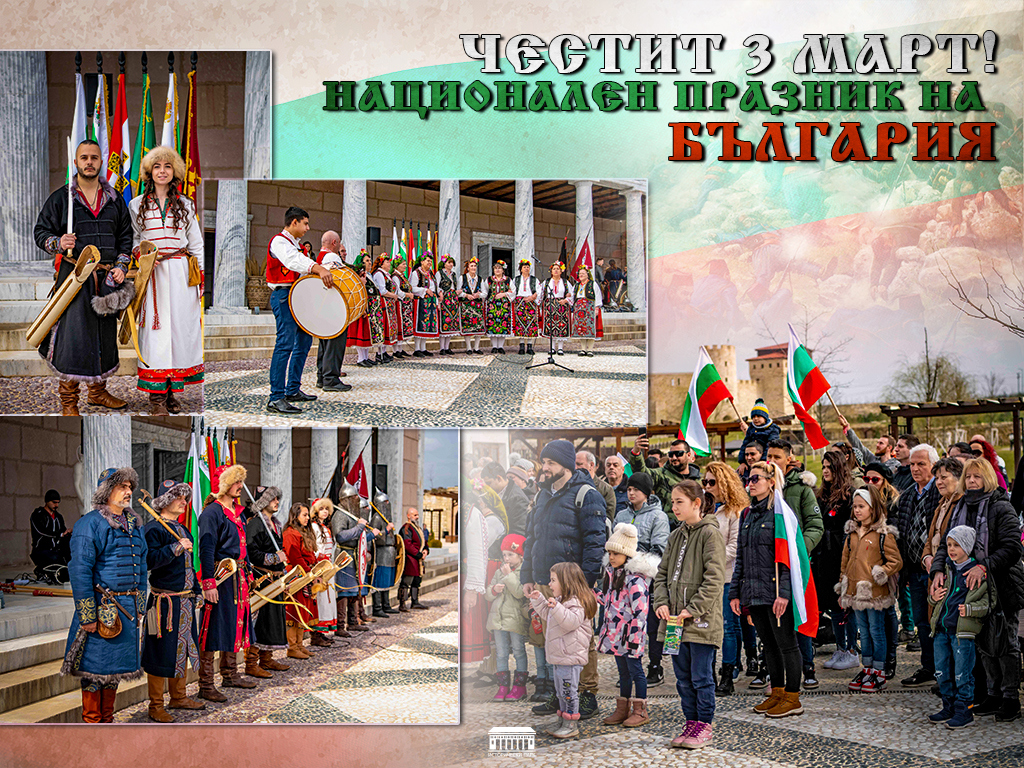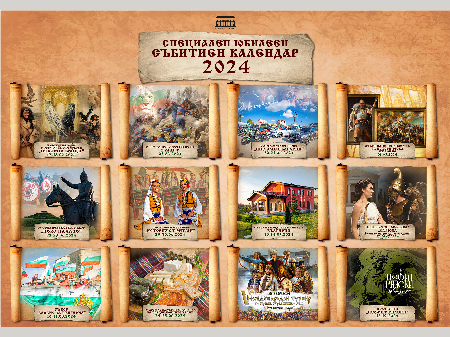The ancient Thracians remained in history as renowned winemakers. In Antiquity, Dionysus, the god of wine, was believed to have come from Thrace. In his poem the "Odyssey", Homer praises the Thracian wine. He described it as a very thick drink of divine aroma.
Due to the great popularity of Thracian wine in the ancient world, it preserved its local name: Zelia, Zila, Zelas. This word suggests a direct relationship with green, but also with the Bulgarian for a potion, a spell, or even a poisonous herb.
For Thracians, wine is not only a staple in their diet but also a sacred drink. No important event in the life of the Ancient man occurred without a feast - from his birth to his death, he was accompanied by the ritual spill of wine. In the wedding scene of the Kazanlak tomb, a ruler is depicted with a phiale in his hand, as a wine pourer gets closer.
The wine is poured both on the feasts and during various rituals. In the Rhodopian sanctuary of Dionysus, there was a libation that showed the birth of the new king. The wine was poured on a burning altar, and if a huge flame burned over the roof of the sanctuary, it meant that the ordered ritual would call for great deeds.
The Historical Park offers its guests a ritual tasting of a special variety of honey wine (150 ml), made in the Thracian tradition. The wine is poured into accurate replicas of rhytons, phiales and other vessels of famous Thracian treasures. Thus, the participants in the tasting have the unique opportunity to enjoy the divine drink to the fullest extent and experience the glory of mighty Thracian heroes.
The attraction is suitable for visitors over 18 years and costs 20 leva per participant.
IMPORTANT: All outdoor attractions may be affected by the weather or other conditions on site. We recommend that you confirm by phone the presence of the attraction on the day of the visit and ask for your understanding if the conditions change during the visit and that you might not have the opportunity to enjoy it.
 RITUAL WINE DRINKING
RITUAL WINE DRINKING




